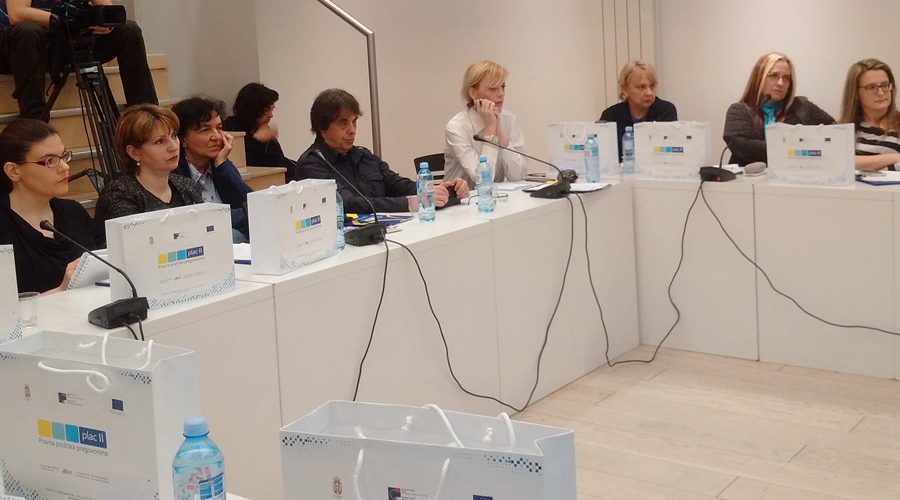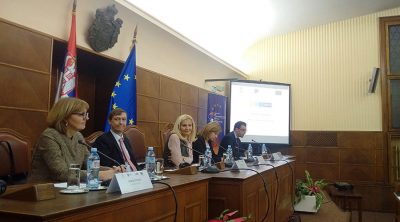Chapter 9 – Financial services is one of the three negotiation chapters Serbia is to open in June. EU regulations related to banks, capital markets, investment funds – areas that are increasingly international in nature and digitised, were the topics of media briefing “On the path to the EU – Chapter 9” organised by the EU Info Center and Policy and Legal Advice Centre (PLAC II) project, on March 14th.
By hamonising with EU regulations in this chapter, Serbia will improve its financial system, along with the position of participants in the market and users of services, increase consumer protection and provide a diversified range of services in the financial market.
Radica Nusdorfer, Head of the European Integration section at the EU Delegation to Serbia, said that Chapter 9 includes complex issues aimed at the security and efficiency of the financial system, which are important for citizens, businesses, investors and all users of financial services.
In order to achieve full harmonisation with EU regulations in the field of financial services, Serbia needs to amend two laws and pass a new one, said Aleksandar Janjušević, Acting Assistant Minister of Finance. It is necessary to amend the Law on the Capital Market (in areas related to the market of financial instruments and protection of participants in the financial market), as well as the Law on investment funds. Also, a new Law on alternative investment funds needs to be passed, which will provide the basics for the work of entrepreneurial and similar funds, regulate the issuance of licenses, as well as the way of their functioning.
Speaking about the MIFID II Directive, which is the basis for EU regulation in the capital market, the PLAC II Project expert Pierre Matek said that its goal is to improve the functioning of the capital market after the weaknesses revealed by the 2008 financial crisis.
In the field of market functioning, this Directive aims to increase trade transparency, prevent market abuse, and increase competitiveness and quality of services. In the area of consumer protection, MIFID II regulates product governance, independent investment advisors, portfolio management services, holding of financial instruments and client money, structured deposits, provision of information on financial products and services, and rewarding employees.
The MIFIR Regulation foresees that the European Securities and Markets Authority (ESMA) has the right to prohibit the marketing, distribution and sale of certain financial instruments, as well as certain practices to protect investors and integrity of the financial market.
Tatjana Jovanić, from the Chapter 9 negotiating group, said that based on the experience of Croatia and Montenegro she expects the EU to formulate four or five benchmarks for closing negotiations in this chapter. It is expected that the benchmarks will be related to financial conglomerates, continued implementation of Basel III standards, as well as to the field of insurance. She added that the process of EU accession leads to the financial system liberalisation, thus opening up the space for the development of non-banking financial institutions, such as savings co-operatives and crowdfunding.
Photo: Beta / Milan Obradović i projekat Pravna podrška pregovorima







